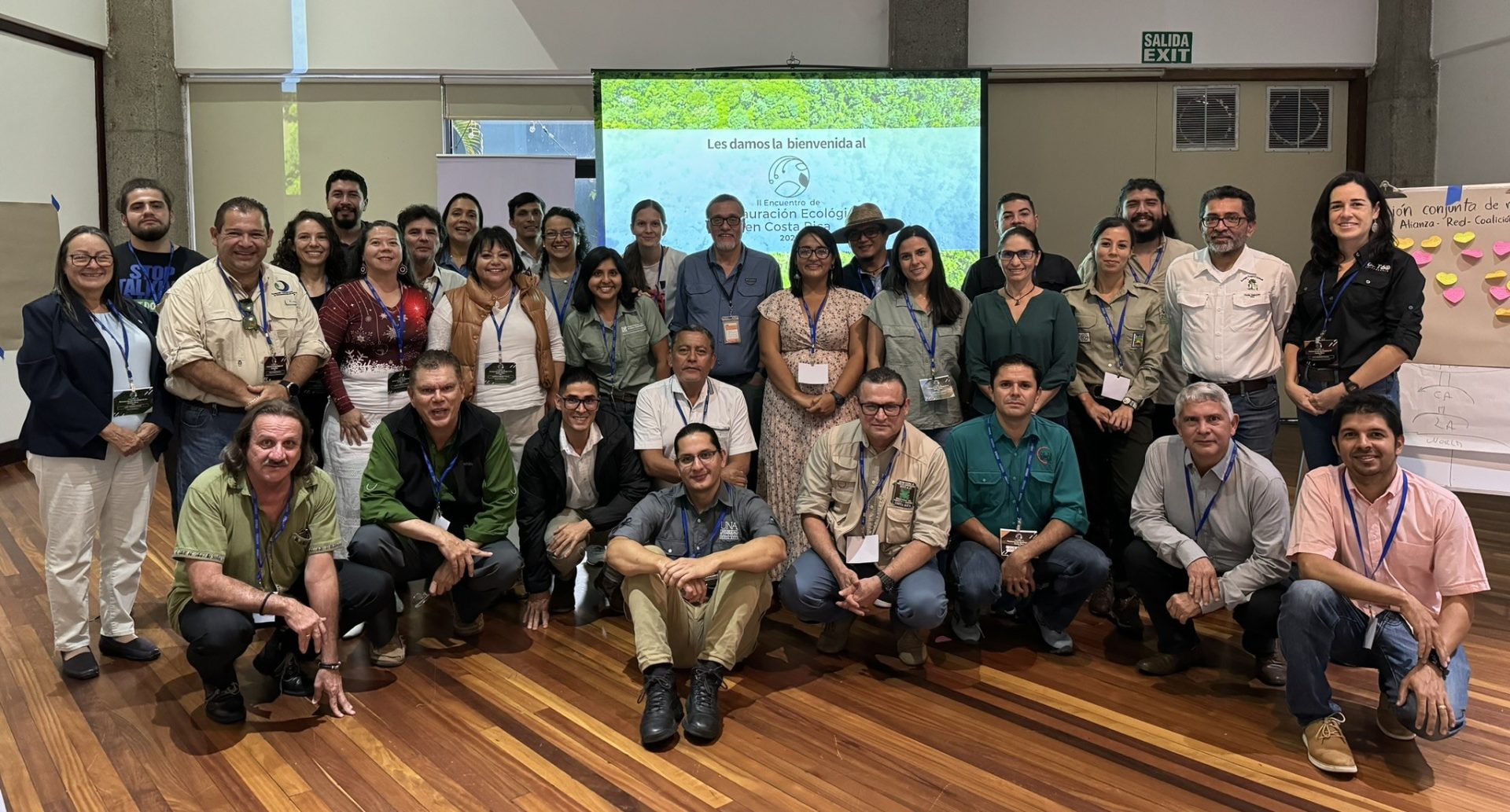At the time, the activity allowed a rapprochement between organizations and perspectives with panels dedicated to discussing academic proposals, programs, public strategies, and practical experiences. It was held over two days virtually and was supported by the Organization for Tropical Studies (OTS), the Functional Ecology and Tropical Ecosystems Laboratory (FETEL) of the National University, Guarumo Ecological Restoration, and the Costa Rican Foundation for Ecological Restoration (FUCORE).
Two years later, and with the participation of new allies, we held the second Meeting of Ecological Restoration of Costa Rica on December 6-8, 2023, in order to generate a platform for exchange between different actors to promote synergies and collaborative ways of working. The first two days were held virtually. On December 8, an in-person meeting was held to lay the groundwork for a national network of ecological restoration among the shared interests. That day we worked on the analysis of the state of ecological restoration; identification of challenges, goals, and actions; objectives, vision, and mission; as well as reflection on possible forms of organization.
The event was held, thanks to the participation of Guarumo RE, OTS, LEFET-UNA, FUCORE, ITCR, MEP, UTN, CIMAR-UCR, ICOMVIS-UNA, Proyecto Transición Hacia una Economía Verde Urbana (TEVU), Proyecto Conectando Comunidades y Ecosistemas, FONAFIFO-MINAE, Fundación Corcovado, CATIE, Huella Verde de la UNED, Red Estudiantil de Restauración Ecológica de la UNED, Refugio Lapa Verde, Fundación Rutas Naturbanas, Programa de Cuencas Hidrográficas, CNFL, Hatillo Verde, Costa Rica Silvestre, CBPL, RIFA, National Museum, Proyecto Camino Verde, and others.
Synergies and joint actions
Participation and alliances are very important, because, as LEFET-UNA Coordinator Roberto Cordero points out, the academy does not know everything about the local context; therefore, a restoration project must learn and understand community priorities and suggest strategies taking all this into account. The academy contributes knowledge and receives it back in part with the territory’s ancestral knowledge, which goes beyond the ecology or geography of the site.
“An atmosphere of camaraderie and inclusion was achieved, and we were able to move forward in the formation of an emerging national network in restoration. We have an environment conducive to form the principles and ways of working. The challenge is to place the new network in a status of national reference and international recognition so that it can at least participate in the national guidelines on ecological restoration at all levels.”

